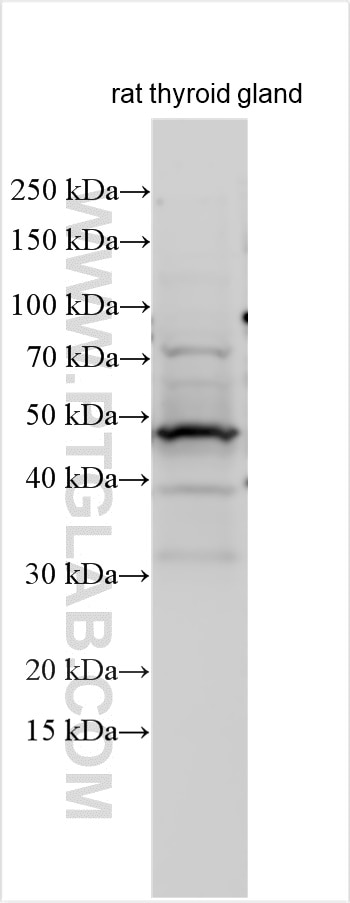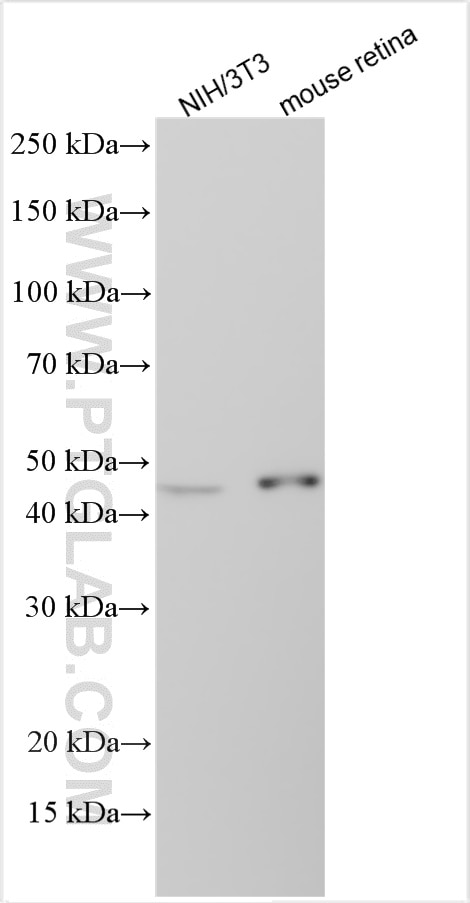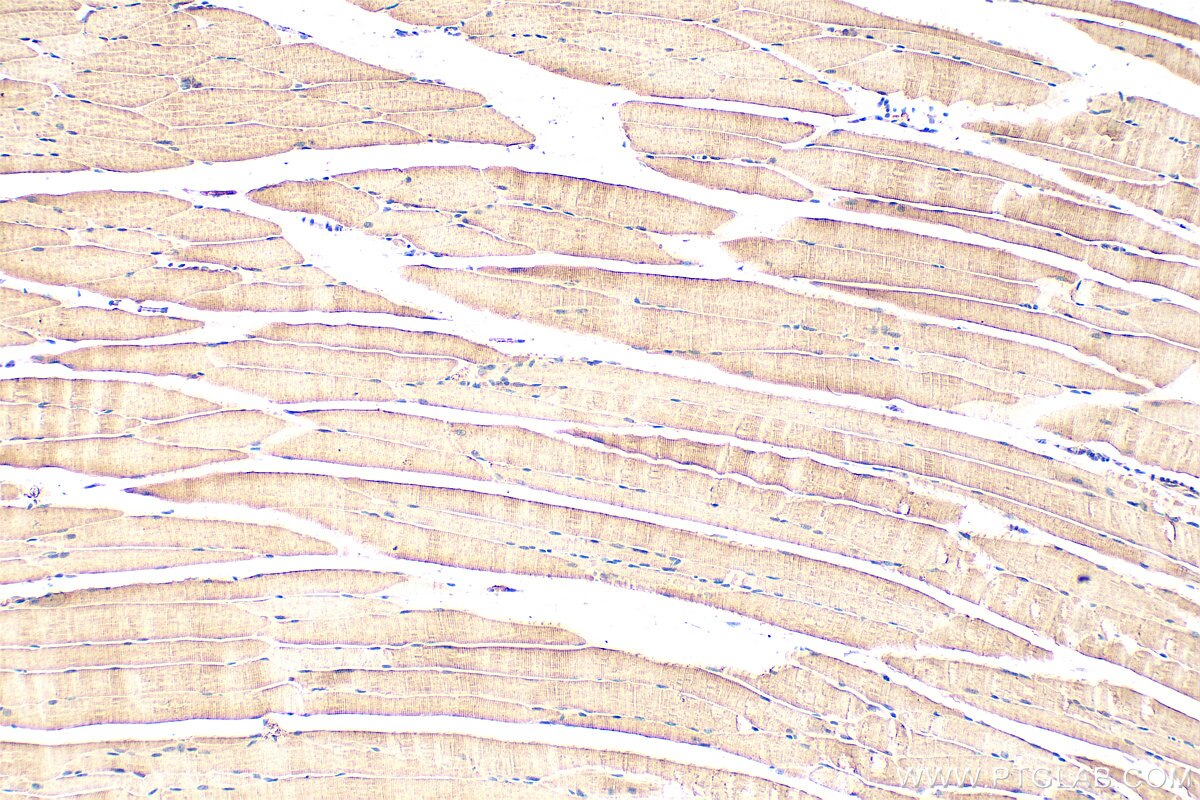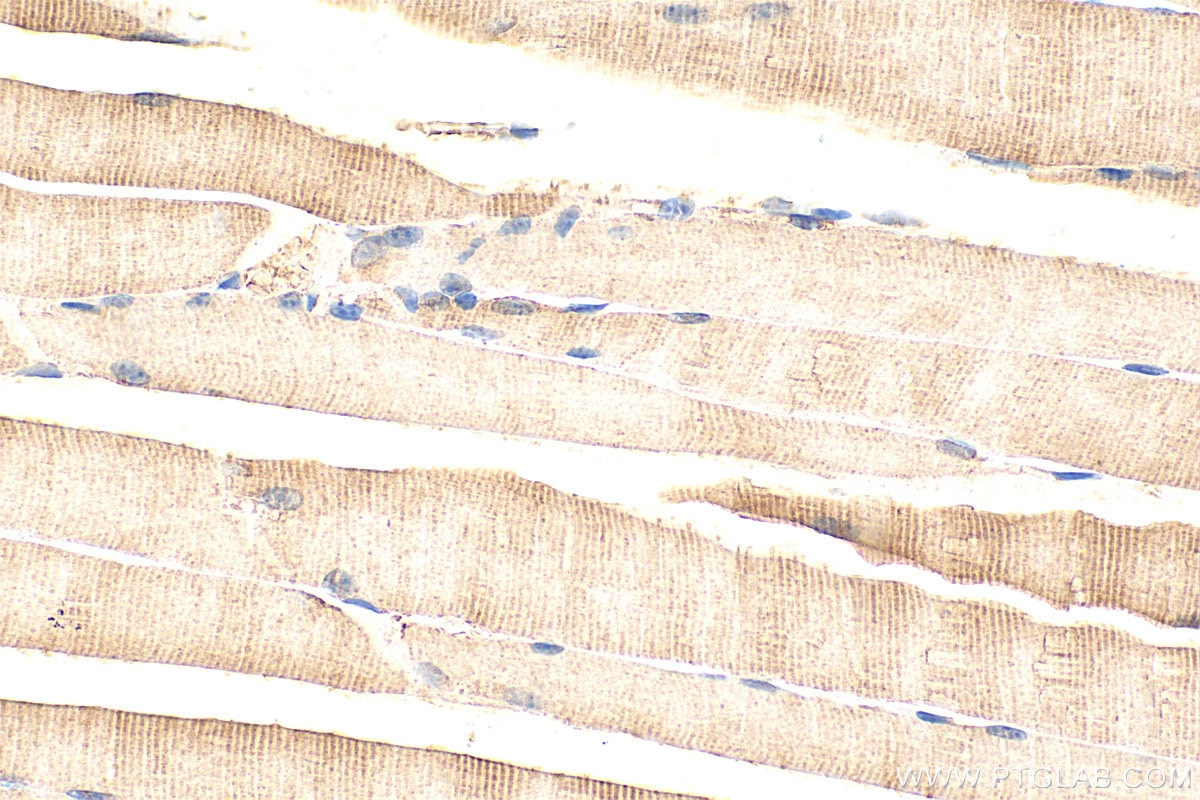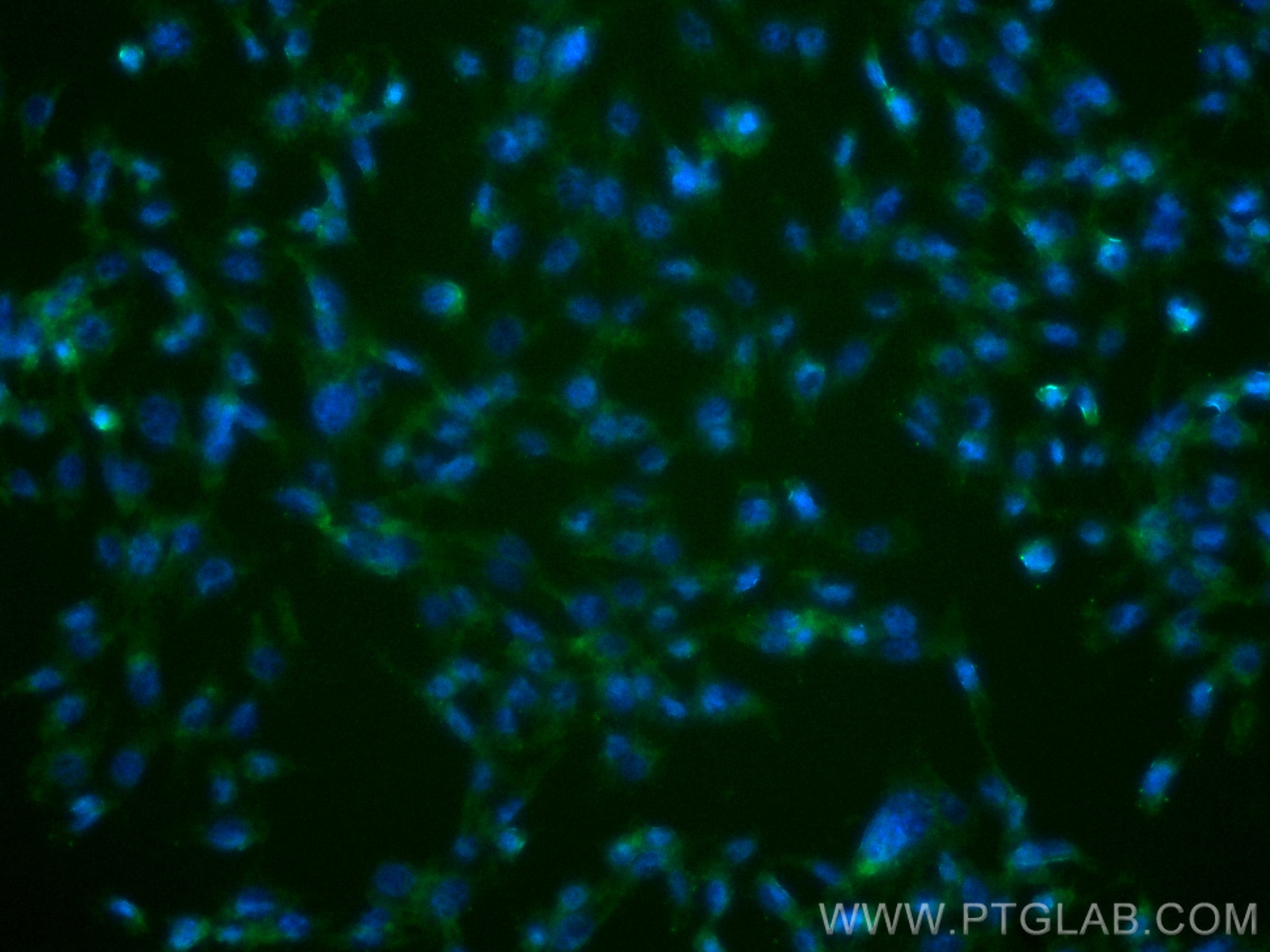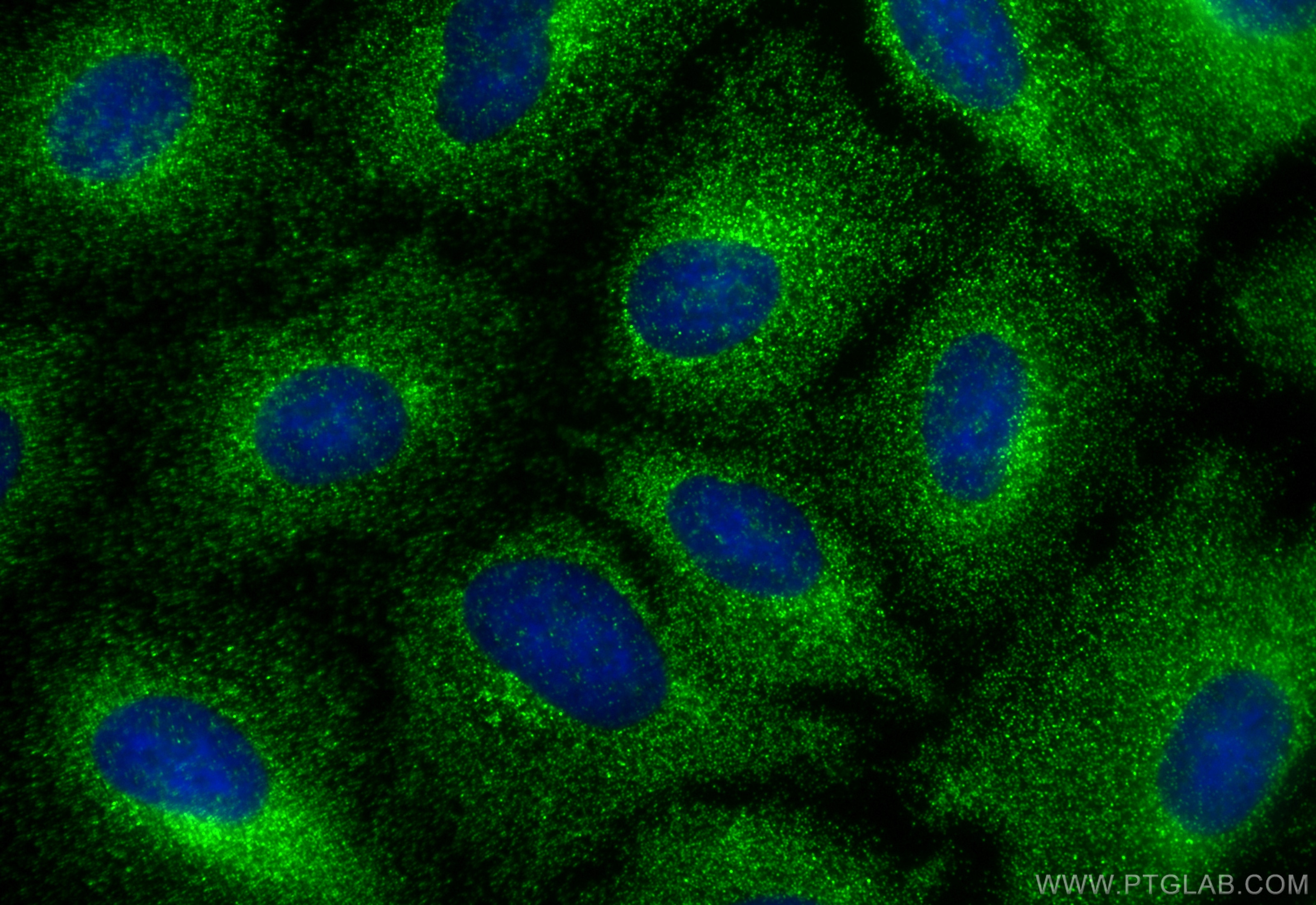ISLR Polyklonaler Antikörper
ISLR Polyklonal Antikörper für WB, IHC, IF/ICC, ELISA
Wirt / Isotyp
Kaninchen / IgG
Getestete Reaktivität
Maus
Anwendung
WB, IHC, IF/ICC, ELISA
Konjugation
Unkonjugiert
Kat-Nr. : 24306-1-AP
Synonyme
Geprüfte Anwendungen
| Erfolgreiche Detektion in WB | NIH/3T3-Zellen, Maus-Retina-Gewebe |
| Erfolgreiche Detektion in IHC | Maus-Skelettmuskelgewebe Hinweis: Antigendemaskierung mit TE-Puffer pH 9,0 empfohlen. (*) Wahlweise kann die Antigendemaskierung auch mit Citratpuffer pH 6,0 erfolgen. |
| Erfolgreiche Detektion in IF/ICC | NIH/3T3-Zellen, A549-Zellen, SH-SY5Y-Zellen |
Empfohlene Verdünnung
| Anwendung | Verdünnung |
|---|---|
| Western Blot (WB) | WB : 1:500-1:1000 |
| Immunhistochemie (IHC) | IHC : 1:50-1:500 |
| Immunfluoreszenz (IF)/ICC | IF/ICC : 1:200-1:800 |
| It is recommended that this reagent should be titrated in each testing system to obtain optimal results. | |
| Sample-dependent, check data in validation data gallery | |
Produktinformation
24306-1-AP bindet in WB, IHC, IF/ICC, ELISA ISLR und zeigt Reaktivität mit Maus
| Getestete Reaktivität | Maus |
| Wirt / Isotyp | Kaninchen / IgG |
| Klonalität | Polyklonal |
| Typ | Antikörper |
| Immunogen | ISLR fusion protein Ag19446 |
| Vollständiger Name | immunoglobulin superfamily containing leucine-rich repeat |
| Berechnetes Molekulargewicht | 428 aa, 46 kDa |
| Beobachtetes Molekulargewicht | 44-46 kDa |
| GenBank-Zugangsnummer | BC022478 |
| Gene symbol | ISLR |
| Gene ID (NCBI) | 3671 |
| Konjugation | Unkonjugiert |
| Form | Liquid |
| Reinigungsmethode | Antigen-Affinitätsreinigung |
| Lagerungspuffer | PBS with 0.02% sodium azide and 50% glycerol |
| Lagerungsbedingungen | Bei -20°C lagern. Nach dem Versand ein Jahr lang stabil Aliquotieren ist bei -20oC Lagerung nicht notwendig. 20ul Größen enthalten 0,1% BSA. |
Hintergrundinformationen
The Immunoglobulin superfamily containing leucine-rich repeat protein(ISLR), is involved in various biological events, such as embryonic development, Gaucher's disease, and replicative senescence of fibroblasts in some organs, including the heart, pancreas, and bone marrow. ISLR, also known as meflin, is a newly discovered marker of mesenchymal stem cells, which is involved in pathological fibrosis and the cancer microenvironment. (PMID: 34713300)
Protokolle
| PRODUKTSPEZIFISCHE PROTOKOLLE | |
|---|---|
| WB protocol for ISLR antibody 24306-1-AP | Protokoll herunterladen |
| IHC protocol for ISLR antibody 24306-1-AP | Protokoll herunterladenl |
| IF protocol for ISLR antibody 24306-1-AP | Protokoll herunterladen |
| STANDARD-PROTOKOLLE | |
|---|---|
| Klicken Sie hier, um unsere Standardprotokolle anzuzeigen |
